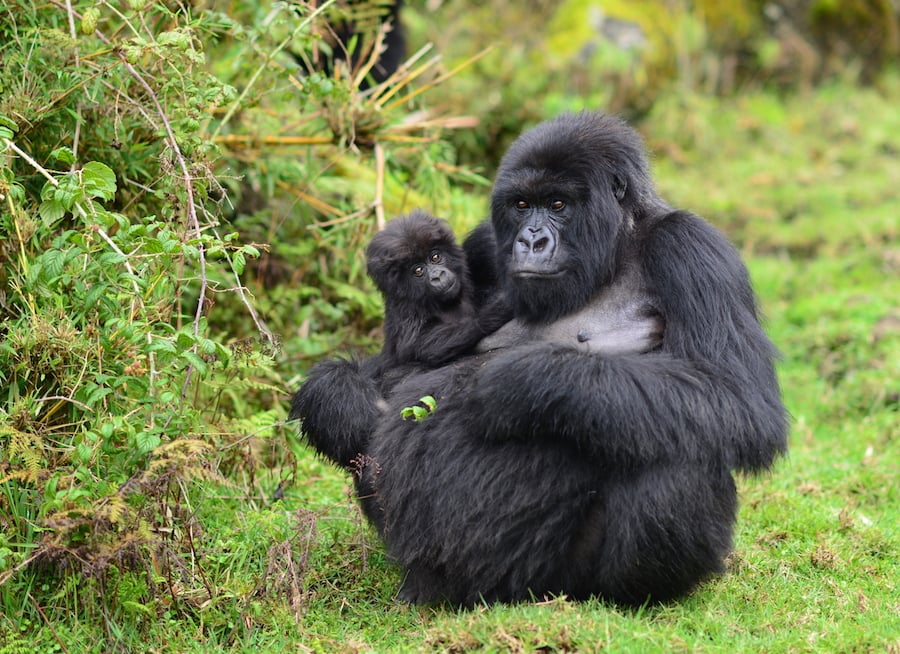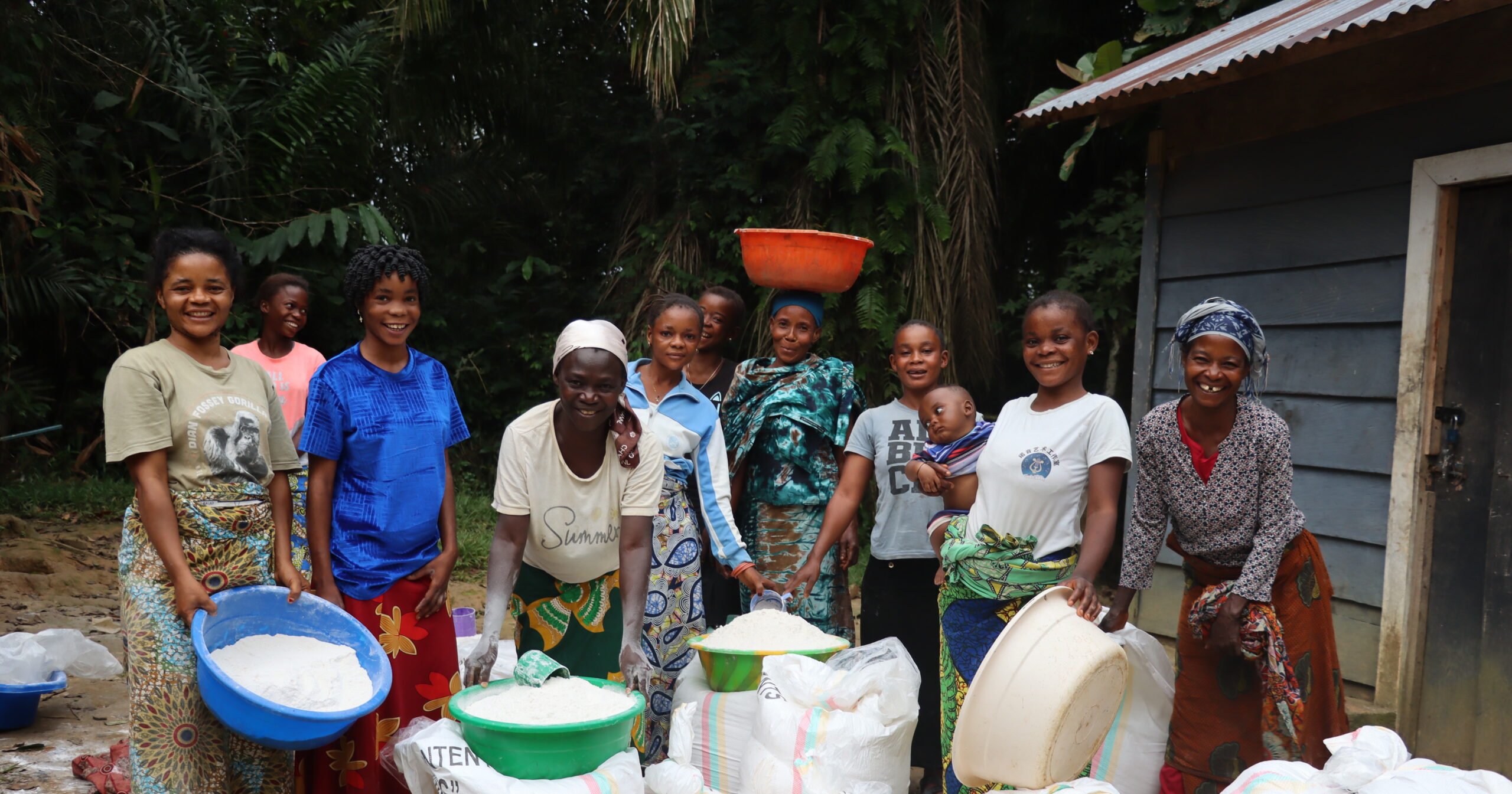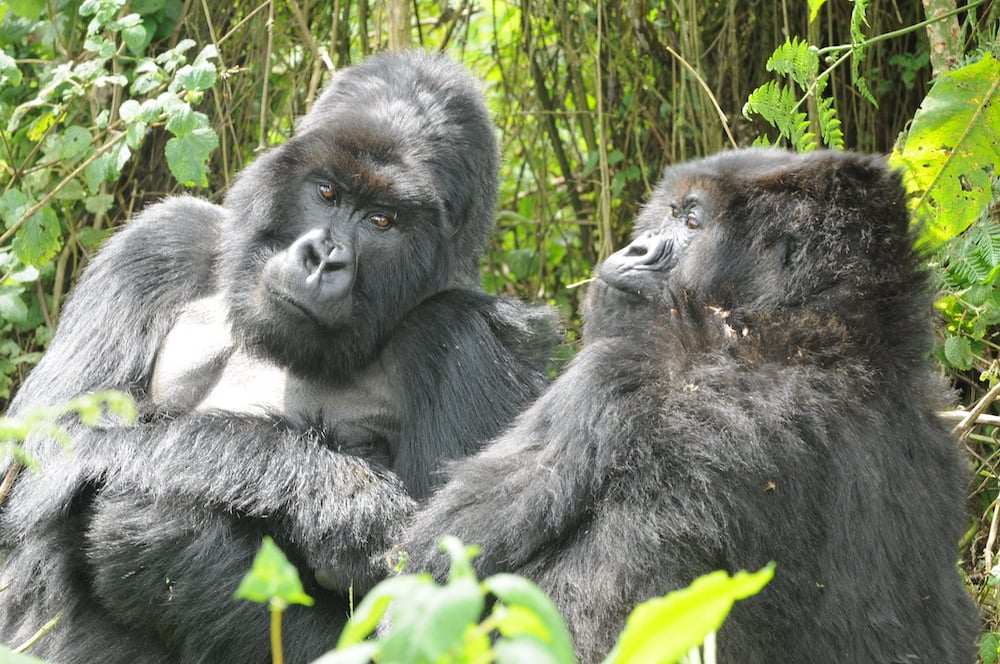October 6, 2011
Gorilla Ginseng Declining Despite Medical Attention
Bwenge's gorilla group has had a tough time of it lately, as two individuals have required a medical intervention within the last month. Staff from the Fossey Fund's Karisoke Research Center, the Mountain Gorilla Veterinary Project (MGVP) and the Rwandan Development Board (RDB) conducted an intervention Tuesday on Ginseng, a 31-year-old female mountain gorilla.
Ginseng has been ranging peripherally from the group for some time now, and periodically during the last several weeks, she has been traveling alone. This unusual behavior has recently been observed in several other females, including Umusatsi, Kubyina and Kwiruka. On Oct. 1, Ginseng rejoined her group and subsequently sustained several injuries on both hands and feet as a result of aggression from the group's dominant silverback, Bwenge. She has remained with the group, but has been trailing a considerable distance behind and Karisoke trackers have discovered her previous night's nests to be at least 100 meters from those of the rest of the group.
Ginseng was moving very slowly, resting frequently and appeared to be very sore and weak during the veterinarian's observation period several days ago. Some of her wounds, such as an open cut on her right ankle, were suspected to have become infected and her behavior led all involved to decide a medical intervention was necessary.
The intervention team was composed of Karisoke researcher Winnie Eckardt, Ph.D., veterinarians Drs. Jan Ramer and Julius Nziza of MGVP, Dr. Elizabeth Nyirakaragire of RDB, and Karisoke and RDB trackers. The team found Ginseng the morning of Oct. 4 in the saddle region between Mt. Visoke and Mt. Karisimbi. She appeared to be lethargic and was not feeding regularly.
Taking advantage of Ginseng's initial 800-meter distance from the rest of Bwenge's group, the team was able to safely and successfully carry out the intervention. The veterinarians' assessment determined that, although her heart rate and respirations were normal, Ginseng had lost some weight and had a low temperature. She also had blood in her nostrils and a deep wound on the knuckle of her left hand middle finger. A physical exam was conducted, samples were collected and antibiotics, anti-inflammatory and deworming medications were administered during the intervention.
With the medications that Ginseng received, there was hope that her health would improve. However, over the last two days, the Karisoke trackers have observed a gradual decline. When the staff reached Ginseng this morning, it was evident that her death would probably be imminent. Although she has been separated from the rest of her group by more than a kilometer during the last 24 hours, this afternoon trackers reported that silverback Bwenge is now moving his group closer and closer to Ginseng's location.
Continuing the recent pattern of female mountain gorillas opting to travel solo, today is the second day that Umusatsi and her 3-year-old infant Rwema were reported missing from Kuryama's group. While this is not unusual behavior for Umusatsi, Fossey Fund Gorilla Program Manager Veronica Vecellio says she is "concerned because of all the past experiences of females going missing, only to find them in very poor health several weeks later." A Karisoke anti-poaching team will be dispatched tomorrow morning to search for Umusatsi and her infant. The Fossey Fund will monitor both Ginseng and Umusatsi's situation closely.
Jessica Burbridge, Field Communications






